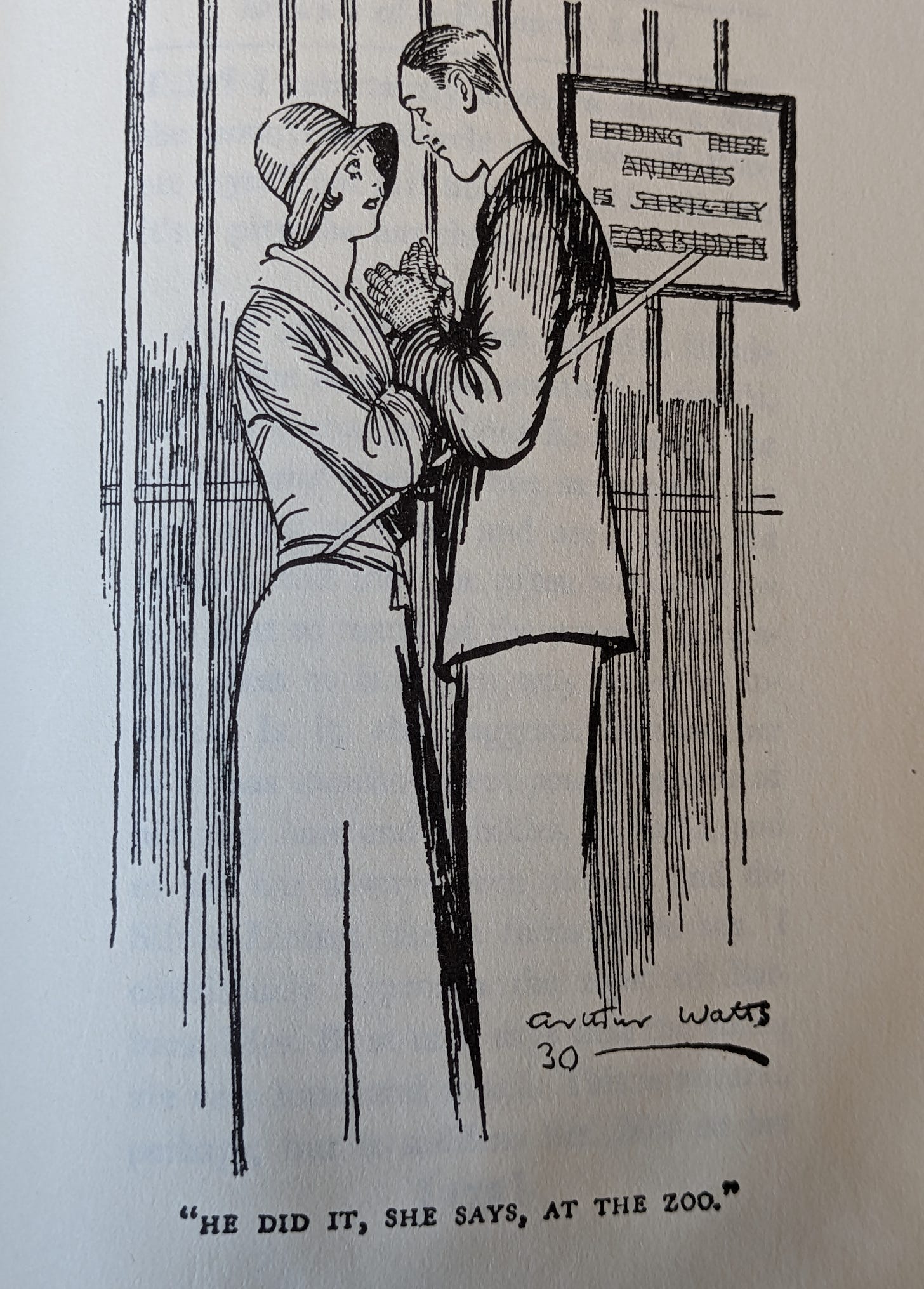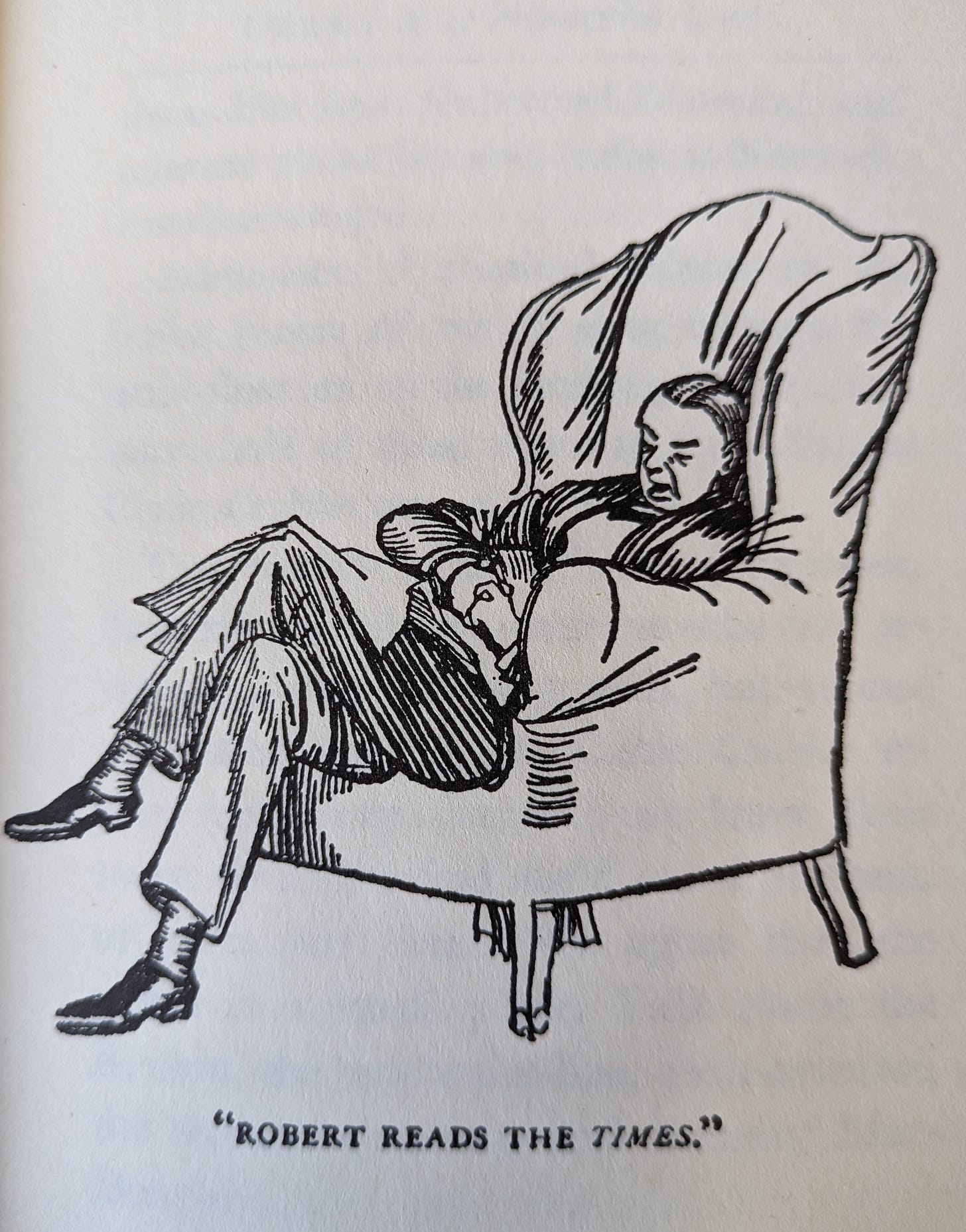Miss Buncle Finds Her Way
Unlikely Pecuniary Adventures in an English Village during the Great Depression

When I first encountered first Miss Buncle on the radio recently, I thought that D.E. Stevenson’s almost forgotten novel of the Great Depression had a far-fetched premise. In Miss Buncle’s Book, Barbara Buncle, the long-time resident of the quintessentially English village of Silverstream, finds that her finances are pinched, and after searching around for a solution, and dismissing chicken-farming (she doesn’t like feathers) and paying guests (her maid Dorcas puts her foot down) she decides to write a book. As she explains to her publisher, Mr Abbott, with her dividends plummeting what else can she do?
Mr Abbott, used to writers brandishing worthy messages or claims of burning genius, is charmed by the matter-of-fact Miss Buncle, and her book Disturber of the Peace is not only published, it is a huge success. The trouble is Miss Buncle has not looked far for inspiration, and the inhabitants of her home village of Silverstream are soon enraged to recognise themselves in the cast of the fictional “Copperfield”.
Miss Buncle felt at times quite Agatha Christie to me: Silverstream could easily double as Miss Marple’s St Mary’s Mead or the setting of a Poirot novel, with such recognisable characters as the unworldly vicar, the fortune-hunting society woman, and the not-very-intelligent retired colonel. (Admittedly there is also a lesbian couple, which I don’t remember featuring in any Christie novels.) The plot lacks the puzzle element of Christie though: we know from the start who the novelist is, even if the villagers determined to unmask her do not, so there isn’t a lot of suspense. Instead it’s a gently humorous canter through English village life.
What struck me later is that the apparently preposterous premise of this cosy caper is not so unlikely after all. The 1929 Wall Street Crash sent out ripples that devastated many peoples’ finances – including those in sleepy English villages. Although they were not part of the soup kitchen lines captured in contemporary photographs, the victims included – hidden away behind net curtains – the respectable widows and spinsters of the rural shires. Such women typically did not work but instead depended on small inheritances, often paid as dividends on what had once been solid companies. When hard times hit, they had few options for supplementing their income.
Take for example, Alison Uttley, a middle-aged widow living in Cheshire, who found herself, like Miss Buncle, struggling when her dividends began to dwindle in the early 1930s. She does not seem to have considered chicken-farming but did consider paying guests. In the end, it was the pen that saved her. (Or rather, the typewriter set up in front of the fire.) She farmed not chickens but memories of her own rural childhood through the successors to her memoir The Country Child and the series of Little Grey Rabbit picture books, and eventually – after several lean years – earned an excellent income.
It wasn’t only in England either: across the Atlantic, Laura Ingalls Wilder (although admittedly she had always had to work hard for her living) was discovering that the Great Depression meant that she could no longer depend on the proceeds of a column in a farm newspaper, and she already was chicken-farming. She, too, turned to chronicling the doings of small, rural settlements through memories of her own childhood, and the Little House books became lasting classics.
But the closest real life parallel to Miss Buncle is surely E. M. Delafield and her Diary of a Provincial Lady – a book that has never been out of print since it was first published in 1930. E.M. Delafield – the pen name of Elizabeth Dashfield – may have lived in objectively challenging times (the Great Depression, Soviet Russia and World War II are the backdrop to the Lady’s adventures) but the books remain far from depressing reads, as the unnamed Lady (actually Delafield herself) romps through domestic disaster, social embarrassment and financial crisis. She frequently has recourse to the pawn shop (the owner at one point congratulates her on redeeming her great aunt’s ring “just in time”), post dates her cheques and raids the family wardrobes to flog what she can on the 1930s version of ebay. (At one point her husband discovers she has sold his favourite, ancient mackintosh, and does not take it well.) Village life is to the fore, and Delafield’s Devon village even sports its own Barbara, “Barbara Blenkinsopp”, who like Miss Buncle is a stay-at-home spinster swept up in unexpected romance after a trip to London.
Like the fictional Miss Buncle, Delafield probably ran into trouble for cannibalising her own life for gain. While some of her targets took their new fame philosophically, not least her long-suffering husband “Robert” – who actually reads the first book unsmilingly in the sequel, before pronouncing gallantly that it is “funny” – others did not. (Of course Robert/Paul Dashwood had his wife’s substantial royalties to comfort him for his unflattering portrayal.) His employer, the wonderfully ghastly “Lady B”, may not have shared his stoicism. A fixture of the first book, parading around the village in her Bentley while draped in furs and diamonds, lecturing the village’s inhabitants while telling the diary’s narrator that she is “too wonderful” – on one occasion provoking Delafield to celebrate her departure by singing The Marseillaise – she virtually disappears from the sequels. Would Delafield have cut her if she hadn’t experienced some serious blowback?
If Delafield did face opposition, then like Miss Buncle she did not let it stop her writing altogether, and the Provincial Lady books remain one of the more unlikely literary legacies of the Great Depression. The Lady’s intrepid spirit in the face of countless blows remains a delight (and is my regular go-to on doom-filled sleepless nights). As for Miss Buncle’s Copperfield, I don’t know yet if I will return to it, but if you are tempted to explore I would recommend the book rather than the abridged radio series, in order to get the full blast of period charm.





I think you could add O.Douglas' novels to that bookshelf- not written to be comical, but gently amusing in their depiction of Lowland Scotland after the Great War, as the landed gentry become unlanded, so to speak.
Another factor to remember re the spinsters finding it hard to manage is that there were a vast number more spinsters than before or since, because of the 'surplus women' issue so well written about in 'Singled Out' by V.Nicholson.
That's a new name for me, but a period and genre I love. It's joining the list!